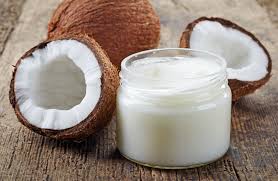The term constipation refers to difficult, infrequent, or absent bowel movements. It is one of the most common health problems associated with a pet’s digestive system. Telltale signs include dry, hard stools and straining when trying to defecate. Some dogs may also pass mucus when attempting to defecate.
What Causes Constipation in Dogs?
There are various reasons why a dog may be constipated:
- Too much or too little fiber in his diet
- Lack of exercise
- Blocked or abscessed anal sacs
- Enlarged prostate gland
- Excessive self-grooming can cause large amounts of hair to collect in the stool
- Matted hair around the anus from lack of grooming or from obesity
- Ingested gravel, stones, bones, dirt, plants or pieces of toys, etc. caught in the intestinal tract
- Masses or tumors on the anus or within the rectum, causing an obstruction
- Side effect of medication
- Trauma to the pelvis
- Orthopedic problem that causes pain when a dog positions himself to defecate
- Neurologic disorder
- Dehydration due to other illness
How Can I Tell if My Dog Is Constipated?
If your dog has not had a bowel movement in over two days or if he strains, crouches, or cries out when attempting to defecate, you should see your veterinarian right away.
Note: These signs may be similar to those seen with a urinary tract problem, so it’s important that you see your vet to determine the cause.
Which Dogs Are Susceptible to Constipation?
Elderly pets may suffer more often from infrequent or difficult bowel movements. However, the condition can occur in any dog that has one or more of the causes of constipation listed above.
Can I Use Coconut Oil For Dog Constipation?
The unique combination of fatty acids in coconut oil may have positive effects on the health of your dog, Coconut oil may have a laxative effect. Proponents, like blogger Hybrid Rasta Mama, claim that coconut oil may increase metabolism and help food pass more quickly through the body. This may mean more frequent and smaller, softer bowel movements for your dog. Animal studies have shown showed that this coconut oil can improve blood cholesterol levels. However, there isn’t any dedicated scientific research concerning how coconut oil may help constipation.
How to Use Coconut Oil For Dog Constipation
First, you need to read coconut oil labels carefully. Many varieties are refined, which removes some of the supposed health benefits in the processing plant. Look instead for organic virgin coconut oil. It may also be called unrefined on the label. This type of oil has not been processed, so all the goodness and micronutrients have been preserved.
You may stumble upon different coconut cleanses at your local drugstore or Pet needs store. You don’t necessarily need to go all-or-nothing to get the benefits of coconut oil by doing a full cleanse. Instead, the Gut Health Project suggests eating a tablespoon with meals each day.
It’s often in a solid form if the temperature of your room is below 76°F (24°C). Here are a couple of options:
- Mix the solid or semisolid oil with your pet favorite food
- Melt it on the stove over low heat and mix it with a favorite drink or smoothies for the dog to drink.
No matter what you do, introduce coconut oil slowly into the dog’s diet. Too much too soon can cause further problems for the digestive system causing, stomach cramping, or even diarrhea. You may want to start with just a teaspoon at each meal and build from there. Consider keeping a diary to observe any changes in your dog’s constipation that may help you adjust the amount you take.
Other constipation home remedies for dogs
Coconut oil isn’t the only way to cure constipation for dogs. There are many other things you can do to get things moving and your dog happy again.
- Add more fiber to your dog’s diet. When you eat more fiber, your stool becomes heavier and goes through your intestines faster. Beans and whole-grain bread are rich in fiber.
- Increase your dog’s physical activity. Exercising will help your dog’s intestines get more active. Your vet may be able to suggest a good exercise program for your dog. Walking is a good choice for beginners.
- Let your dog drink more water. Fluids and staying properly hydrated can help stool pass through the intestines more easily.
Anecdotal evidence suggests that coconut oil may help with constipation. This is certainly worth trying out, in moderation, to see if it works for your dog. That said, coconut oil may not be the miracle cure for all your dog’s health ailments. Remember that moderation is advisable. If you try any change in your dog’s diet, introduce it slowly. If you continue to have trouble passing bowel movements, contact your Vet. Constipation may be a sign of a more serious condition, like bowel obstruction or cancer. It may also lead to hemorrhoids, anal fissures, or fecal impaction if left untreated. SEE: Smoke Point Of Oils And Fats







